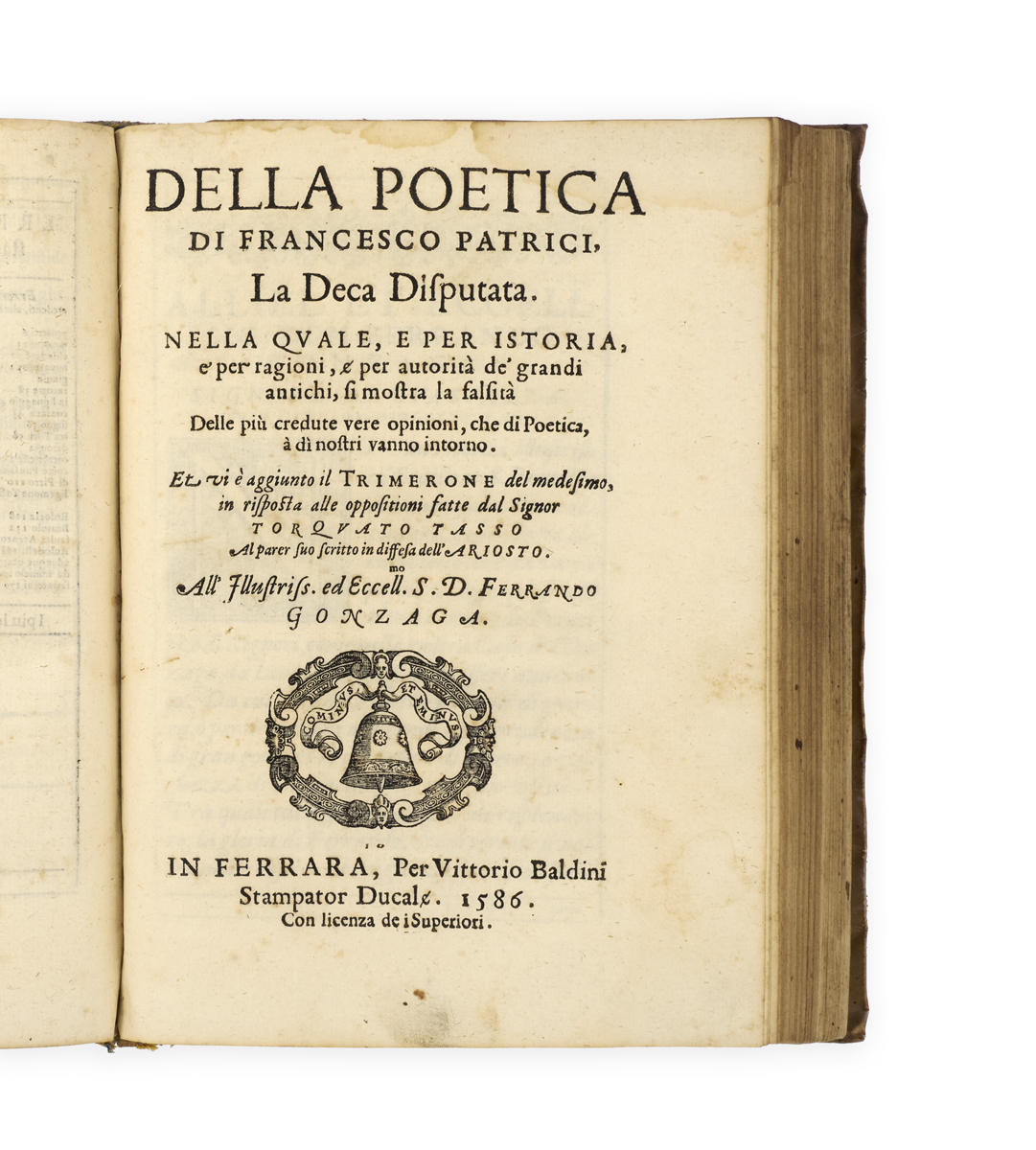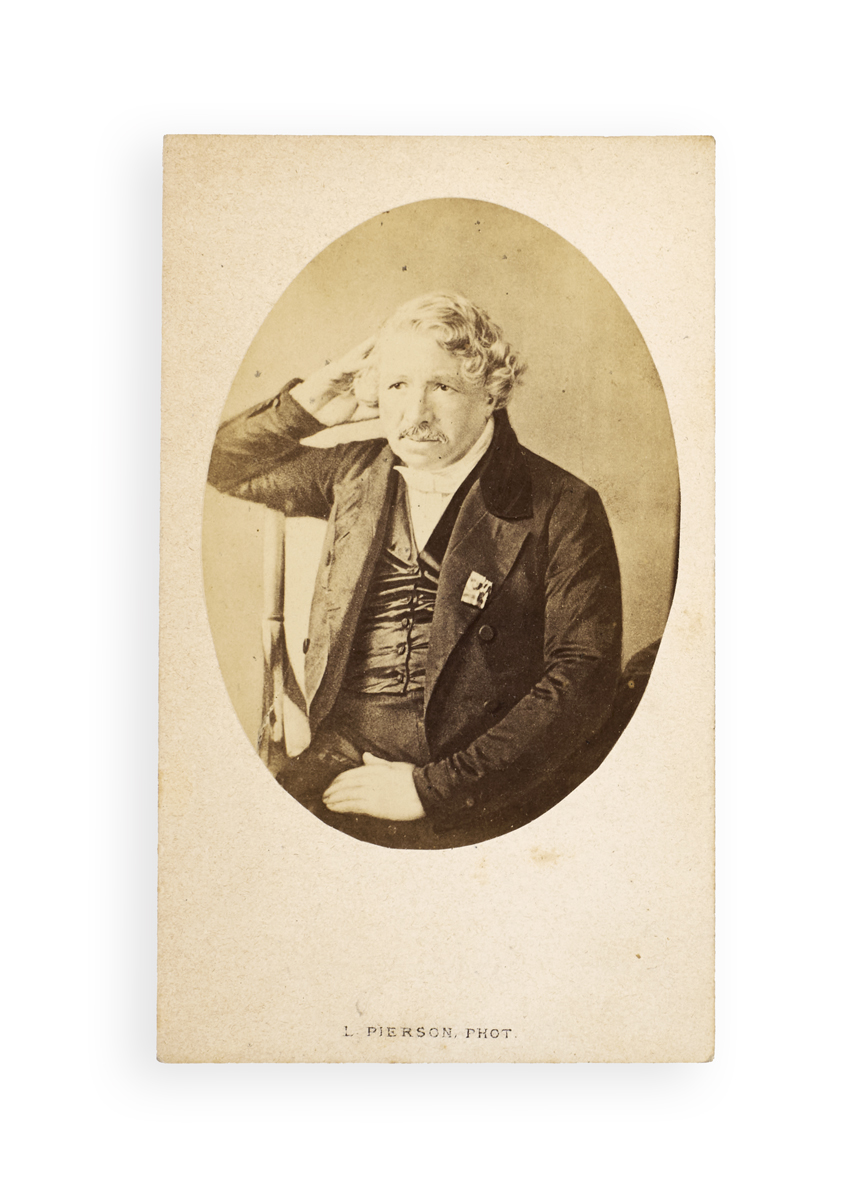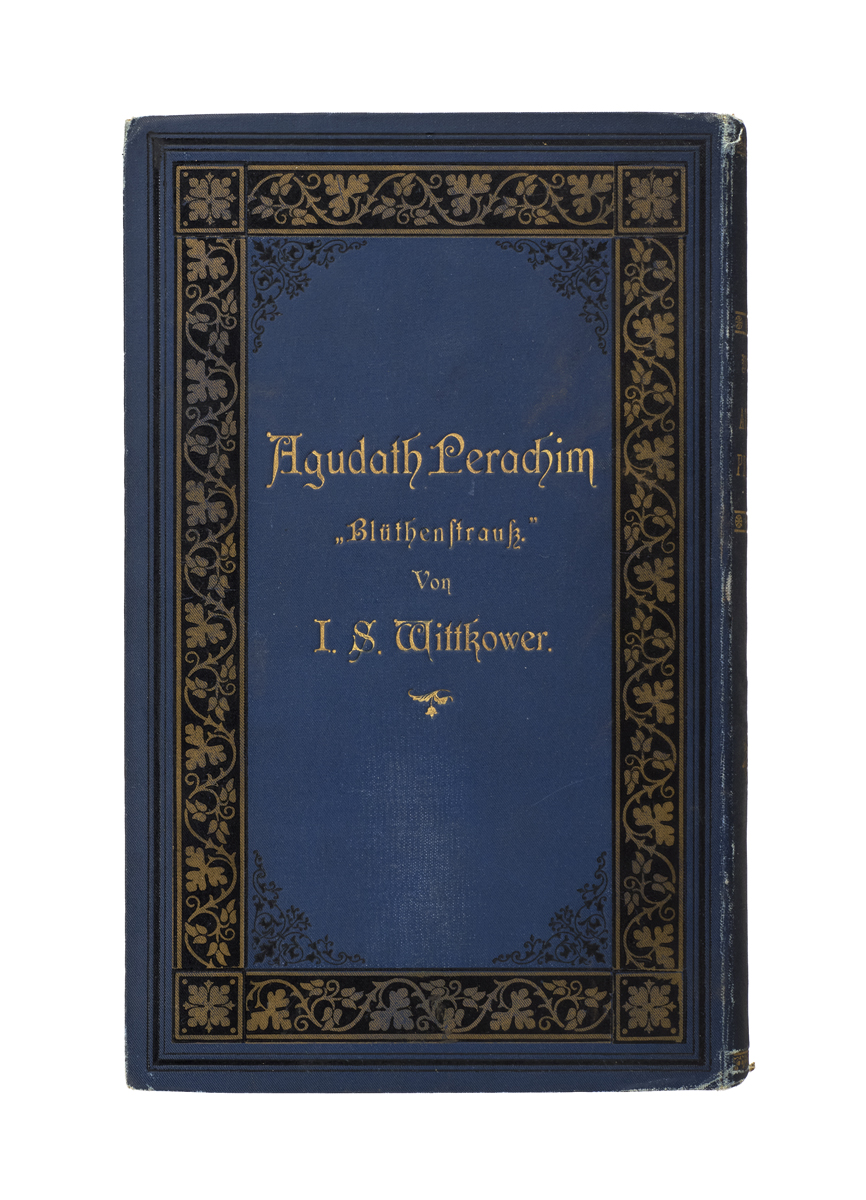
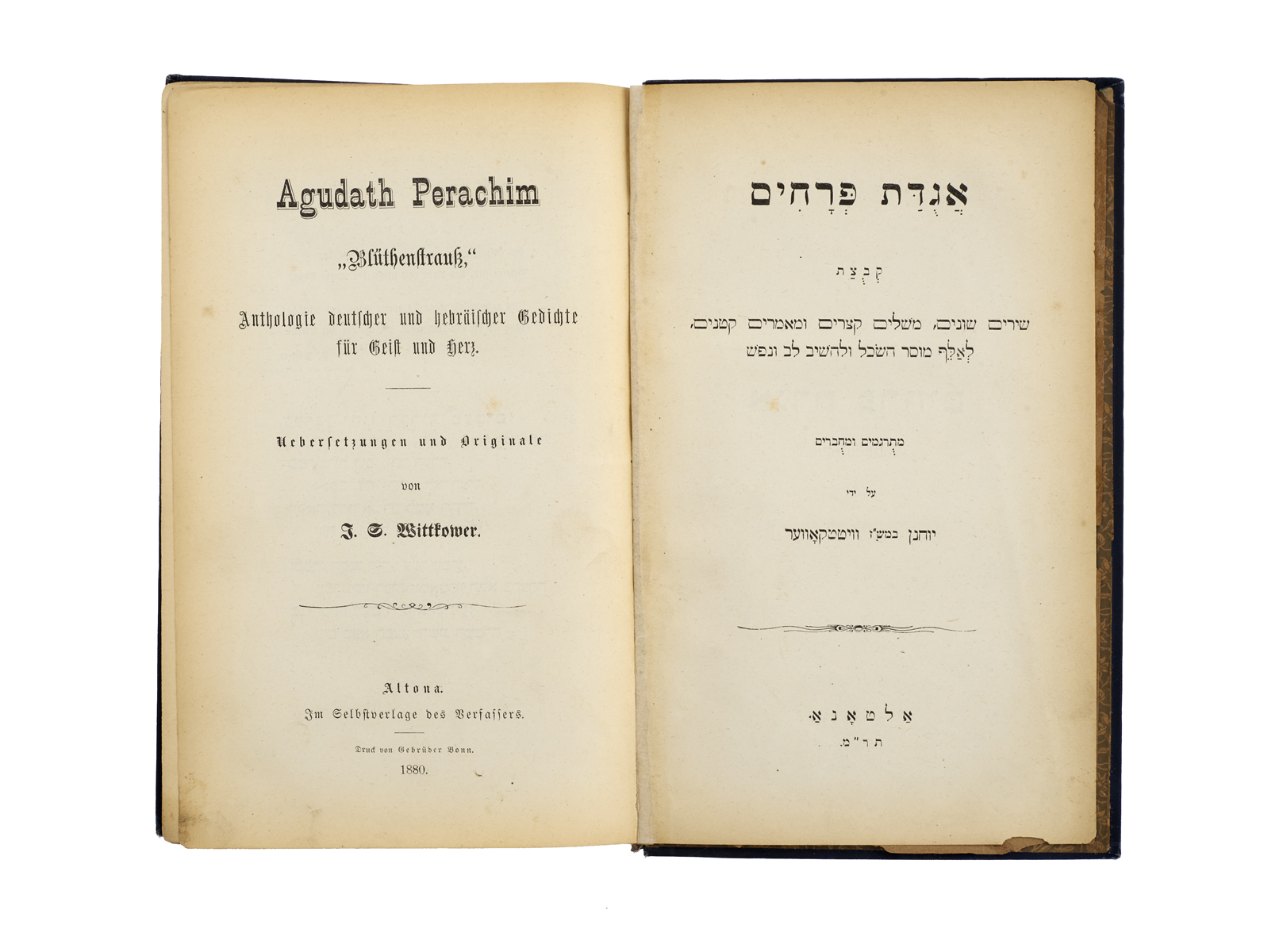
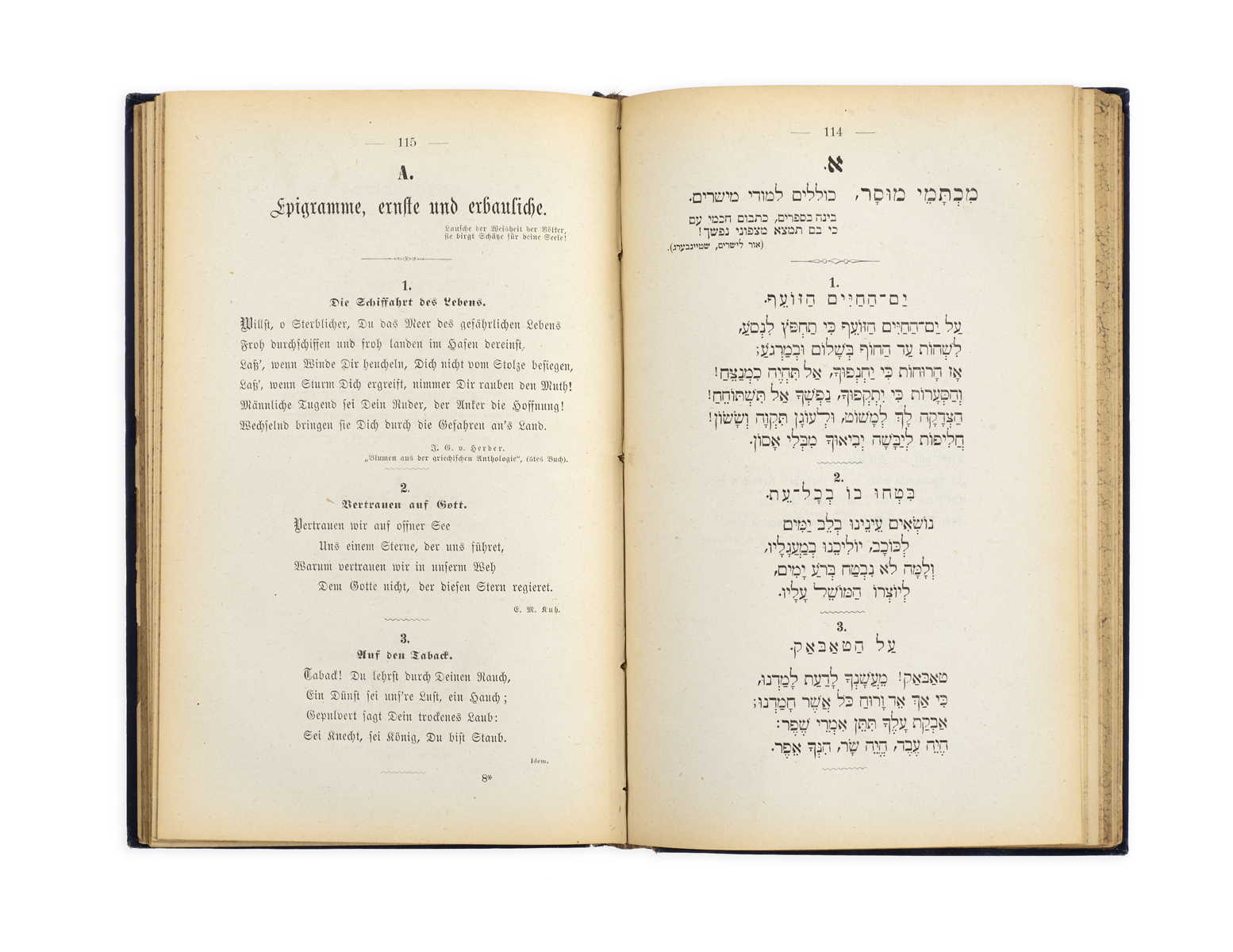
SHAKESPEARE AND SCHILLER IN HEBREW
WITTKOWER, Jochanan.
Agudath Perachim. ‘Blüthenstrauß’. Anthologie deutscher und hebräischer Gedichte für Geist und Herz …
Altona, the Bonn Brothers for the author, 1880.
8vo, pp. xl, 256, [4], 257-340; facing title-pages in German and Hebrew (the latter printed to verso of half-title), facing text in German and Hebrew; front free endpaper reattached and chipped at margins, pp. 309-10 loose, otherwise clean and fresh; bound in the original publisher’s blue cloth, title gilt to front cover within decorative frame, repeated in blind to rear; hinges cracked, some wear to spine; bookplate of Lt. Colonel V.S.M. de Guinzbourg to front pastedown.

Added to your basket:
Agudath Perachim. ‘Blüthenstrauß’. Anthologie deutscher und hebräischer Gedichte für Geist und Herz …
First and only edition of this anthology of moral poems and satirical and edifying epigrams translated from German into Hebrew, as well as transcriptions and translations of epitaphs from the Jewish community of Altona, now a district of Hamburg.
Agudath Perachim was self-published by the translator, Jochanan Wittkower (1830–1889), in Altona, home to a flourishing Jewish community, including the Warburgs (on p. 259 appears the Hebrew epitaph of Jacob Warburg (1847–1870), killed in the Franco-Prussian war aged twenty-three, as well as a German verse by P[ius?] Warburg). He also draws attention to the locations of headstones of several important rabbis and scholars from Altona, and provides poems sourced from the local Jewish community over the course of several decades, including a celebratory poem for the sixteenth anniversary of Hamagid, the first Hebrew-language weekly newspaper, and the bar mitzvah of a community member. Wittkower also provides space for readers to record significant events within their own lives: preceding the final appendix of epigrams are a Gedächtnistafel, with blank spaces in which to record birthdays, bar mitzvah dates, and wedding anniversaries, and on the verso an Erinnerungstafel for noting the anniversary of the death of loved ones and the location of their headstones.
The book was very well received at the time, noted especially for the accuracy of the translation, as seen in Wittkower’s note of thanks to the rabbis and headmasters who had introduced his work into school curricula, as well as the numerous letters of praise and positive reviews published at the beginning of the book. Among these, one is from Rabbi Hermann Adler, Chief Rabbi of the British Empire from 1891 to 1911, thanking Wittkower for the proof sheets and subscribing for a copy of the volume, while apologising for the delay in replying due to his consecration of a new synagogue in Glasgow.
Provnenance: Victor de Guinzbourg (1906–1976), a former governor of the National Counter Intelligence Corps Association and a long-serving attaché to the United Nations. A passionate proverb-enthusiast, Guinzbourg was a founder and Permanent Secretary of the Pareomiological Society and his only published work, Wit and Wisdom of the United Nations (1961), is a collection of ‘proverbs and apothegms on diplomacy’.
OCLC and Library Hub find three copies in the UK (BL, Manchester, Warburg).
BM STC Hebrew, p. 247; Zeitlin, Bibliotheca hebraica post-Mendelssohniana II, p. 422. See Zürn, Die Altonaer jüdische Gemeinde (1611–1873): Ritus und soziale Institutionen des Todes im Wandel (2001), p. 278.
